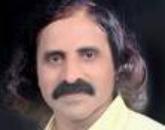
&g
By India’s First Music Therapist
Music has frequently been used as a therapeutic agent from the ancient times. Music is a kind of yoga system through the medium of sonorous sound, which acts upon the human organism and awakens and develops their proper functions to extent of self-realisation. This is the ultimate goal of Hindu Philosophy and religion. Melody is the keynote of Indian Music. The 'Raga' is the basis of melody. Various 'Ragas', have been found to be very effective in curing many diseases. Music helps in the treatment of actual diseases in the following manners:
Music Therapy is not the subject of an article only. The entire subject is now in the experimental and implementation stage and data are rapidly accumulating. And the ancient system is gradually being transformed in to a modern science. Since -1993, I am a practitioner of Music Therapy. After, more then eight thousands patients, I have observed that - Indian classical 'Ragas' have been acclaimed to have healing effects. They stimulate the Brain, ease tension and remove fatigue. The effect of Music Therapy may be immediate or slow, depending upon number of factors like the subject, his mental condition, environment and the type of Music, selected for having the desired effect. Music Therapy largely depends on individual needs and taste. The use of Music as therapy is based on scientific and clinical approach and has to be used with great care and deep study of the nature of illness. We can call it "The study of Individual- Modality Theory". Before using music as Therapy it must be ascertained which type of music is to be used? The concept of Music Therapy is dependent on correct intonation and right use of the basic elements of music. Such as notes [swara] rhythm, volume, beats and piece of melody. There are countless 'Ragas' of course with countless characteristic peculiarities of their own. That is why we cannot establish a particular Rag for a particular disease. Different types of Ragas are applied in each different case. When we use term Music Therapy, we think world -wide system of therapy. Literature of Vocal part of Indian Classical Music is not sufficient in that case.
We should apply the formula of three ' Ps ' -
i] Perfect Time - It includes duration, span, interval and time to play the music.
ii] Perfect Direction - It includes posture and conditions to listen the music.
iii] Perfect Force - It includes Tone, Timber, sound quality and volume of Meditative Music
We should remember the three categories of patients’ i.e.
i] Music Learned,
ii] Music Lovers,
iii] Non-Musical.
Select the Meditative Music accordingly. Music helps in the treatment of actual diseases in the following manner:
One obvious use of music is that of a sedative. It can replace the administration of tranquilizers, or at least reduce the dosage of tranquilizers. Music increases the metabolic activities within the human body. It accelerates the respiration, influences the internal secretion, improves the muscular activities and as such affects the "Central Nervous System" and Circulatory System of the listener and the performer.
The modern revival of music therapy has not yet sufficiently progressed to indicate its full utility. Several problems immediately invite further research. Under existing conditions, it would seem advisable to broaden the foundation of musical research. Not only to advance the ethical and moral rights of the human being, but also to prevent, if possible, the negative and destructive influences which may be due to ignorance of the laws governing the effects of sound and rhythm. The Indian would regard it as a sacrilege to profane his magic music, and would further insist that such profanation would destroy the healing power of the rites. It is obvious that the psychological effect of the therapeutic music would be greater if the patient understood that the scientific foundation of the procedure had been thoroughly established.
I take a great pleasure in introducing this contribution to the Music lovers of India.
I am sure this little knowledge will prove a great help in increasing awareness for Music Therapy. Physiological, Psychological, Physical, Moral, Intellectual, and Spiritual effects of music confirm the supremacy of Indian Music.
BENEFITS OF MUSIC THERAPY
1. Music acts on our mind before being transformed into thought and feeling.
2. Music influences the lower and higher cerebral centers of the brain.
3. Use of Music as a therapy helps search of an individual’s personal harmony.
4. Music therapy is an important tool in the treatment of both psychological and psychosomatic disorders.
5. Music Therapy stimulates good vibrations in the nerves of the listeners.
6. Music brings about a sense of mental well being in individuals.
7. Music Therapy helps to clear the junked thought in mind, which leads to have positive frame of mind.
8. Music Therapy enhances the concentration level of children.
9. Music improves the capacity of planning.
10. Music training helps to express refined exhibition of emotions and clarity in cognition too.
The present day heavy schedule on individuals and work pressure tolls, first the mindset and then many organs. The beating heat is a delicate mechanism, highly sensitive to emotion-provoking situations. Many research and several independent studies relate emotional circumstances to physiological conditions effecting cardiovascular function as well as to the cardiovascular pathology. When the work pressure was greatest, serum cholesterol fell and the whole-blood clotting time was accelerated. Like that when work pressure is reduced these things will also come to normality.
Classical music with its unique swara/note structure ensures calm and cozy mind by exposure and subdues the emotion provoking situations. Music plays an effective role in subduing the so-called emotional imbalance.
“Music Therapy Day is celebrated on 13 May of each year”
India’s First Music Therapist
Dr. Bhaskar Khandekar
First Ph.D. in Music Therapy, Classical violinist, Musicologist

Comments should be on the topic and should not be abusive. The editorial team reserves the right to review and moderate the comments posted on the site.